The content of the article
Surely in your environment there is at least one lover of crunching fingers: a family member, colleague, acquaintance. Or maybe you yourself love this activity? After all, the habit of crunching fingers is very common: in this way people try to calm themselves, adapt faster to a new place or strangers. However, this habit is not as harmless as is commonly thought. It can not only cause negative emotions of those around (some people’s crunching joints is very annoying), but also harm their own health. Therefore, you need to get rid of it, and the sooner, the better.
Crunch Physiology
Most often, the owners of this habit claim that crunching with fingers helps them feel more confident and relaxed in an unusual situation. This process also helps them calm down and put their emotions in order.
Some of them believe in the myth that finger crunch helps to strengthen their own joints, because is a kind of training for them. Of course, this opinion is erroneous and directly opposite to reality. The habit of “kneading” the fingers in no way strengthens the joints: on the contrary, it leads to their gradual wear.
What happens to our fingers and joints when we crunch them? Pulling the bones apart, we provoke a drop in pressure in the inter-articular (synovial) fluid that enters the joint. It consists of carbon dioxide and a small amount of nitrogen. As a result of its getting into the joint, the gas turns into bubbles, which begin to burst: it is these pops that we hear when we start to crackle with our fingers.
Effects of crunching
Long-term effects on the joints can result in a number of unpleasant painful conditions:
- swelling of the hands or areas around the joints;
- pain even at rest;
- pinched nerves;
- the appearance of a hygrom;
- weakness of hands, loss of previous strength;
- dislocations, subluxations and much more.
Can the habit of clicking fingers lead to the appearance of arthritis, definitely can not say. Some experts speak out about the high degree of probability of such a development of events, while others deny its possibility. However, they all agree in one opinion: categorically not recommending cracking fingers to people with a genetic predisposition to joint diseases (including arthritis).
How to stop crunching your fingers
Any habit is characterized by the fact that its implementation is brought to automatism. Therefore, the first thing to do is to recognize the problem and constantly keep your consciousness “on”. More often than not, we don’t notice that we started snapping joints until someone draws our attention to it. For this reason, you will need constant concentration and control over your own hands. Each time, having caught yourself on the fact that you have begun to “stretch” your fingers, stop the action by force.
Ask family members, friends, and colleagues for help: let them make comments every time you get your fingers cracked.
Analyze when the habit takes you up. Surely these are stressful, emotionally saturated situations, as finger crunching is, in most cases, a nervous habit. To overcome it more easily, find other ways to handle stress: drawing, puzzling, needlework, carving, or burning. Sports training will give a good effect: they not only help withstand stress, but also increase self-confidence.
If you are different in sequence, then you can record all cases when you start to crack your fingers: write them in a notebook or, for example, in a mobile phone. Keeping such a diary for at least a week will reveal certain patterns in your behavior and it will be much easier to fight a bad habit.
Help yourself by taking your hands in some kind of business whenever the desire to crunch your joints approaches: do yourself a finger massage, squeeze a carpal expander, twist small balls or cubes in your hands. Learn to twist a coin or a pencil with the fingers of one hand - such a skill will help you distract from thoughts about the crunch and cause delight among others.
Try to include phosphorus and calcium in your diet: fish, cottage cheese, nuts, and legumes. This will help strengthen and repair the joints.
A person is capable of many things, including overcoming his addictions. The main thing is not to rush, because the “older” your habit is, the more time it will take to get rid of it.
Video: is it harmful to crunch your knuckles

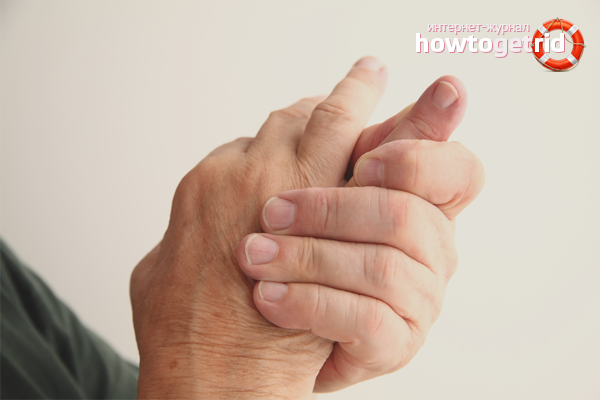

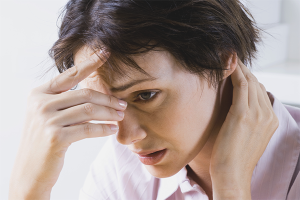
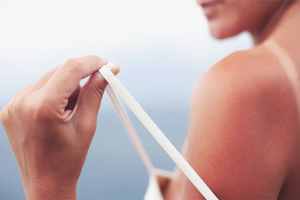

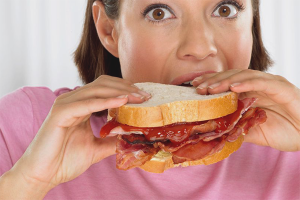
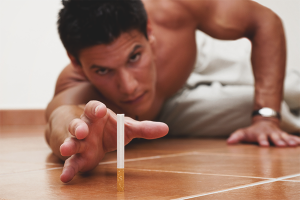

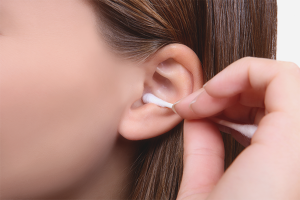
Submit